Southern discomfort: How the unrest roiling Latin America is making headaches for Trudeau
Promise appears to have turned into problems for Canadian PM in Latin America
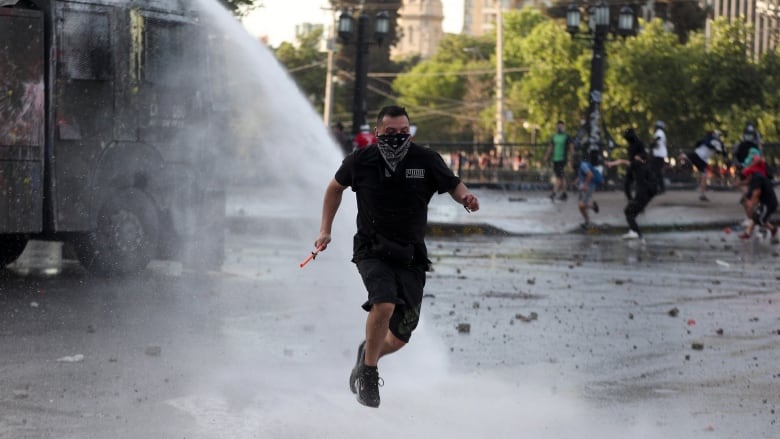
The cancellations of the APEC Summit and the COP25 climate summit in Chile following deadly riots and looting in the country are just the latest eruptions of turmoil from Latin America spilling over into Canadian politics.
APEC was to have been the first overseas trip of Justin Trudeau's second term as prime minister. But for Trudeau, a continent that last year appeared full of allies and promise has turned colder as partners have been replaced with difficult and unfriendly leaders.
The 14-country Lima Group coalition that Canada helped assemble to restore constitutional order in Venezuela has lost some of its main members, whilePresident Nicolas Maduro has not only survived, but forged new alliances.
Meanwhile, hopes of a free trade deal between Canada and Mercosur, the South American common market, seem to have been forgotten as the trading bloc's main members trade insults with one another.
A partner is defeated
Argentina's President Mauricio Macri was elected to office just two weeks after Trudeau became Canada's prime minister in 2015, but he was defeated on Sunday.
Macri was dragged under by a poor economy, and the woman who ruled Argentina before him Cristina Fernandez de Kirchner now returns to office. Nominally she is only vice-president, but many Argentines believe that she, rather than president-elect Alberto Fernandez, will hold real power.
The Kirchner-Fernandez duo represent a restoration of a populist government that sought alliances with Iran, Syria, Russia, and the Maduro regime in Venezuela. Kirchner, meanwhile, is still facing trial for her alleged leadership of a network that traded government contracts for bribes.

Macri's defeat is a loss for the Trudeau government. Trudeau visited Argentina twice in his first mandateand made time to meet Macri on the sidelines of summits from Japan to Peru. Last year Argentina presided over the Group of 20 and Canada chaired the Group of Seven, with both choosing the "future of work" as one of their signature themes.
Macri also joined with Trudeau to create the Lima Group that sought to remove Maduro without military intervention. Argentina's new leaders, though, have been exchanging Twitter pleasantries with the Venezuelan leadeer.
Gracias a @NicolasMaduro por sus felicitaciones. Amrica Latina debe trabajar unida para superar la pobreza y desigualdad que padece. La plena vigencia de la democracia es el camino para lograrlo. https://t.co/2i2rzYkaUf
—@alferdezAnd although Macri joined Canada in rejecting the results of last week's Bolivian election, Argentina's president-elect congratulated Evo Morales on his "electoral triumph".
Muchas gracias, querido @evoespueblo, por tu saludo y por tu amistad. Y mis felicitaciones por tu triunfo electoral. Tenemos el desafo de profundizar nuestros vnculos y reconstruir entre todos el potencial de Amrica Latina, para integrarnos al mundo cuidando a nuestra gente. https://t.co/4XUnXHBqlh
—@alferdezBrazil's radioactive president
Where Argentina swung left, Brazil swung wildly in the other direction, electing the inflammatory populist Jair Bolsonaro.
The so-called "Trump of the Tropics" can be counted on to hold the line on Venezuela.
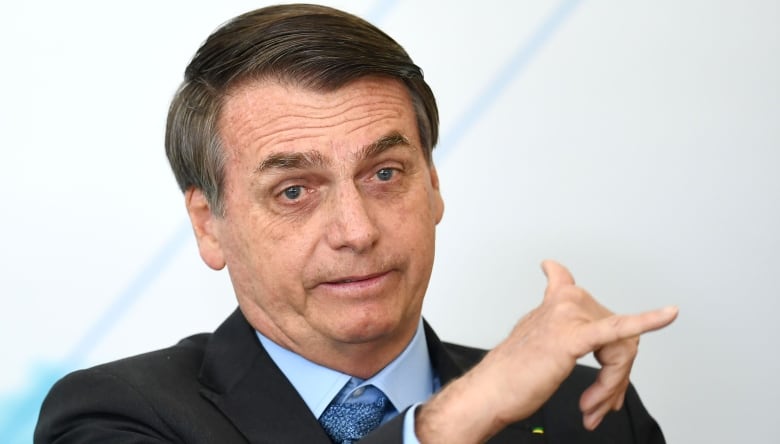
ButBolsonaro isalso a climate change denying homophobe who has said Brazil's Indigenous peoples must either assimilate or disappear. Already considered a firebrand even before the world noticed that the Amazon was in flames under his administration, Bolsonaro is currently embroiled in a scandal over the murder in Rio de Janeiro of an Afro-Brazilian council member and LGBT activist.
The anti-UNDRIP president
It's Bolsonaro's policies, though, that pose a greater problem for the Trudeau government.
He's announced plans to throw open Brazil's Indigenous reserves to mineral exploration, in spite of the fact that Brazil's constitution prohibits it. The foreign country that dominates mining in South America is Canada.
If Bolsonaro invites Canadian companies to enter Brazil's reserves, it could pose a serious problem for a Trudeau government that says it's committed to both environmental protection and Indigenous reconciliation.
During the recent election campaign, CBC News asked the Liberals, Conservatives, Greens and New Democrats whether they would take action to restrict Canadian companies from entering Brazilian Indigenous reserves.
Ultimately, only the New Democrats responded. "We will do whatever is in the power of government to ensure Canadian companies do not violate the rights of Indigenous peoples in Brazil," partypress secretary Nina Amrov told CBC.
Mexico turns left and inward
Through two years of difficult talks on NAFTA, Canada was mostly able to maintain a good relationship with the Mexican government of Enrique PeaNieto. Though each country defended its own interests,for the most part they faced the administration of U.S. President Donald Trump together.
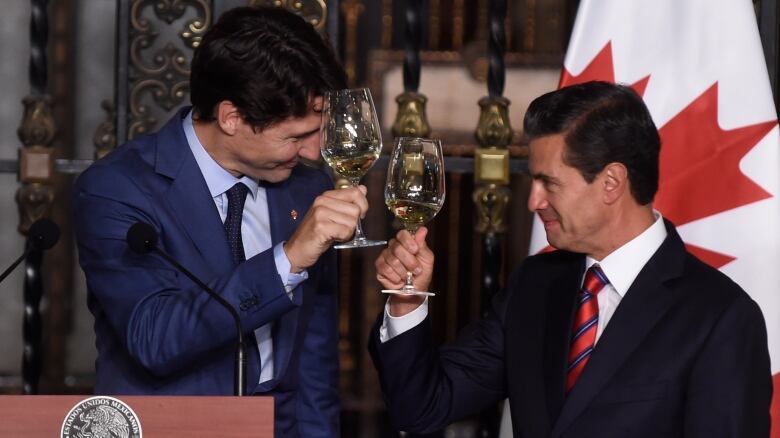
Mexico also was an ally in the struggle against the Maduro regime and signed the founding document of the Lima Group.
Now Pena Nieto is gone, replaced 11 months ago by Andres Manuel Lopez Obrador (known as "AMLO").
AMLO has declared his presidency the "Fourth Transformation" of Mexico (the first three being Independence from Spain, the 19th Century reforms of Benito Juarez, and the Mexican Revolution of 1910). With such grand designs AMLO has naturally turned his focus inward.
Pena Nieto visited Trudeau twice, and members of his cabinet also came North repeatedly. Trudeau also made a state visit to Mexico in 2017, where he was feted on a large scale.
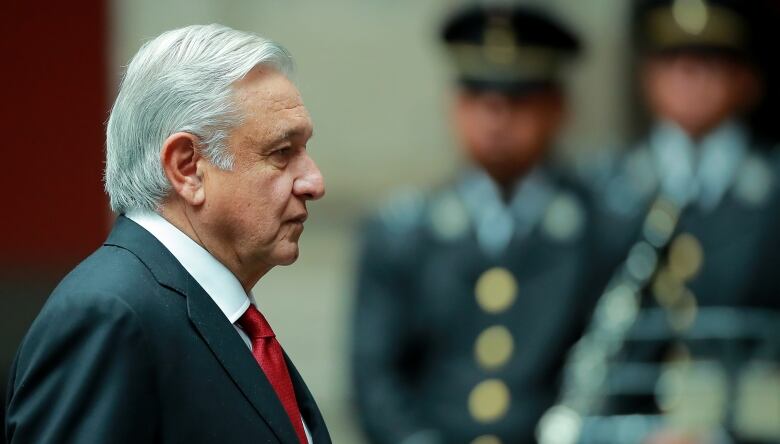
With the inauguration of AMLO and the end of NAFTA talks, exchanges have slowed, although Mexico's Secretary of Economy Graciela Marquez did visit in May.
As for working together on Venezuela? Nicolas Maduro attended AMLO's inauguration as an honoured guest.
Cuba: Embassy illnesses and an unsavoury alliance
In 2016, while answering a question from a student at the University of Havana in the presence of Raul Castro,Trudeau described Cuba as an "ally" of Canada.
But Canada's tolerant approach to Cuba's one-party state has been tested by Havana's far closer alliance with Venezuela.Canada has tried to persuade Cuba to stop supporting Maduro, inviting Cuban Foreign Minister Bruno Rodriguez to Ottawa for talks. But Chrystia Freeland has failed to drive a wedge between two governments that increasingly depend on each other.
In the meantime, Canada has had to reduce its embassy in Havana to a skeleton crew following a series of unexplained illnesses affecting diplomats and their families, usually attributed to some kind of mystery weapon.
This reduction came at the same time that Canada had finallyclosed its embattled embassy in Caracas.
The model nation that wasn't
One of Canada's earliest bilateral trade deals was with Chile in 1997, when the South American nation was emerging as a regional model of stability and growth.
The riots and looting that led Chile to cancel the APEC and COP25 summits came as a rude surprise, and foreign minister Teodoro Ribera acknowledged that "to say that the country has the same image as before would be a mistake. If I said that, as foreign minister, I'd be misreading the international situation."
President Sebastin Piera concluded it was no time to be seen hobnobbing with foreign leaders at huge public expense. He chose to send Chileans a message that for the remaining two years of his mandate his attention will be at home.
Bolivia's disputed election
Although President Evo Morales is a strong ally of Maduro, Canada had fairly good relations with the leftist Bolivian leader until this week, when the Trudeau government announced that it did not recognize the resultsof Bolivia's Oct. 20 elections.
Morales was running for a fourth consecutive term.
There are no plans to draw down Canada's embassy, but the Trudeau government may ultimately have to withhold recognition from Morales if he continues to insist he scored a first-round victory. That would leave Canada diplomatically in the same position with Bolivia as it's in with Venezuela.
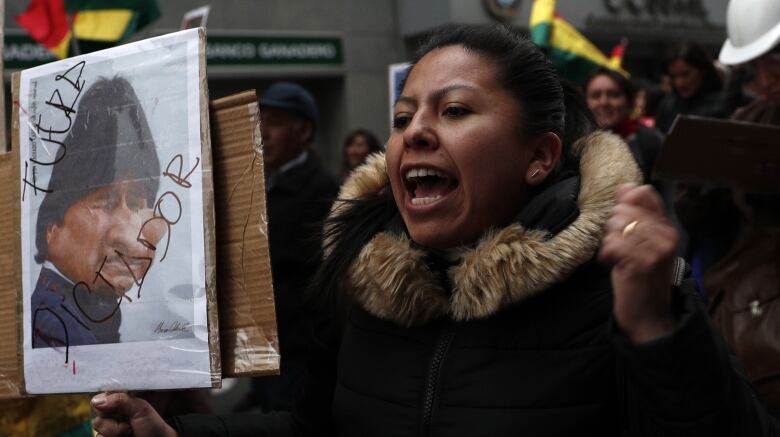
Two major Latin American countries that remain relatively stable and are also run by leaders the Trudeau government can work with are Colombia and Peru. Colombian President IvnDuque was the first Latin American leader to congratulate Trudeau on his re-election, and his administration is closely aligned with Canada on the issue of Venezuela.
Martin Vizcarra was living in Ottawa as ambassador last year when he suddenly became president of Peru on the resignation of Pedro Kuczynski. No populist Vizcarra's image is almost technocratic he has nonetheless attained 75-80 per centapproval as a fighter of corruption. Peru was the original convener of the Lima Group and, like Macri's Argentina, hosted Trudeau twice in his first term.
But those two bright spots can hardly dissipate the gloomy picture that confronts the Trudeau government as it reflects on the changes in the Western Hemisphere in just the past year.












_(720p).jpg)


 OFFICIAL HD MUSIC VIDEO.jpg)
.jpg)



























































































